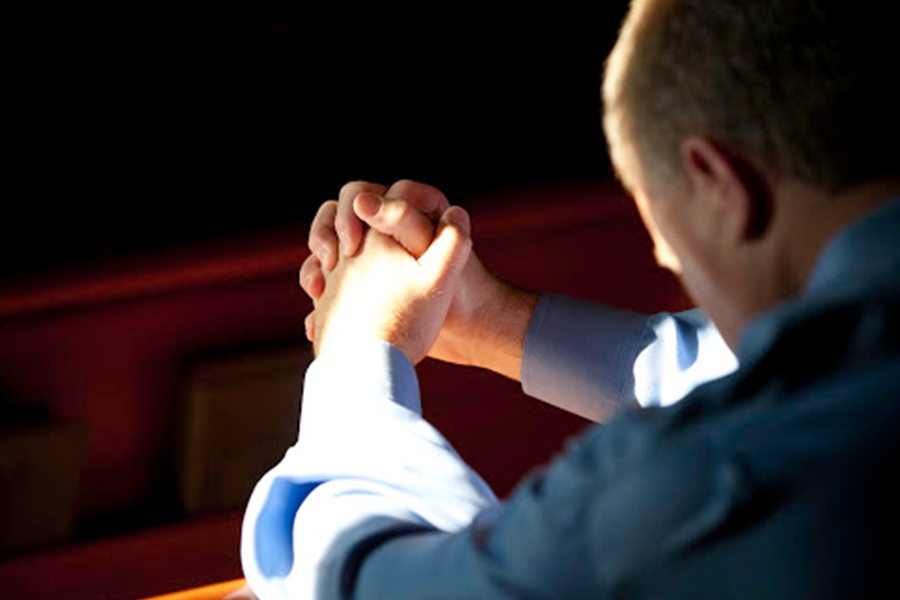
Archpriest Seraphim Nedosekin on Confessing the Faith in Soviet Times
01-31-2021Weekly ReflectionIn our interview, (from the orthochristian blog and edited) we asked him how these Heavenly and earthly Christian warriors can help us overcome the problems of this world. (Note: in the Eastern Catholic Church and the orthodox churches there are married priests.)
Fr. Seraphim, are there any stories in your family history that show how with God’s help people of the twentieth century managed to withstand persecution, just as the early Christians and St. George the Victory Bearer faced the challenges that God chose to give them? Upon hearing God’s call, all Christians will follow their hearts and answer His call. These opportunities to confess our faith are presented to us all the time.
READ MORE
Statement on the Inauguration of Joseph R. Biden, Jr., as 46th President of the United States of America
01-24-2021Weekly ReflectionMost Reverend José H. Gomez, Archbishop of Los Angeles, President, United States Conference of Catholic BishopsMy prayers are with our new President and his family today.
I am praying that God grant him wisdom and courage to lead this great nation and that God help him to meet the tests of these times, to heal the wounds caused by this pandemic, to ease our intense political and cultural divisions, and to bring people together with renewed dedication to America’s founding purposes, to be one nation under God committed to liberty and equality for all.
READ MORETimeless Wisdom and Teaching from Pope Leo XIII An Architect of Catholic Social Teaching
01-24-2021From the desk of Fr. VillaThese paragraphs from the encyclical, Diuturnum Illud, On the Origin of Civil Power (1881) are particularly relevant to the situation facing Catholics in the U.S. today:
READ MORE
Praying for the Souls in Purgatory: What Does It Mean?
01-17-2021Weekly ReflectionSt. John Paul II stressed the need to pray for the Souls in Purgatory. He said, "The first and highest form of charity for brothers is the ardent desire for their eternal salvation ... . Christian love knows no boundaries and goes beyond the limits of space and time, enabling us to love those who have already left this earth." Therefore, not only the belief in purgatory but also the spiritual duty to pray for the souls there remains part of our Catholic faith. Contrary to what some may erroneously believe, Vatican II's "Dogmatic Constitution on the Church" asserted, "This sacred council accepts loyally the venerable faith of our ancestors in the living communion which exists between us and our brothers who are in the glory of Heaven or who are yet being purified after their death; and it proposes again the decrees of the Second Council of Nicea, of the Council of Florence, and of the Council of Trent" (No. 51).
READ MORE
Not a Christianity a la Carte
01-10-2021Weekly ReflectionDear brothers, [...] we have heard the passage from the Acts of the Apostles (20:17-38) in which Saint Paul speaks to the presbyters of Ephesus, intentionally recounted by Saint Luke as the testament of the apostle, as a discourse destined not only for the presbyters of Ephesus, but for the presbyters of all time. Saint Paul is speaking not only with those who were present in that place, he is really speaking with us. So let us try to understand a little of what he is saying to us, at this time. [...]
READ MORE
Ashamed of the Son of Man?
01-03-2021Weekly ReflectionBlessed Rupert Mayer S.J.They who want to win the world for Christ must have the courage to come into conflict with it.
Hearing (Mark 8:34ff), the following hard words of Jesus hit home: For whoever is ashamed of me and of my words in this adulterous and sinful generation, of him will the Son of Man also be ashamed, when he comes in the glory of his Father with the holy angels.
READ MOREThe Saint Benedict Medal
01-01-2021From the desk of Fr. VillaThe Saint Benedict Medal St. Benedict (born at Nursia, Italy, in 480) had a profound veneration for the holy Cross and for our Savior Crucified. In virtue of the Sign of the Cross, he wrought many miracles and exercised great power over the spirits of darkness. In consequence of the great veneration in which St. Benedict was held from the early Middle Ages, it followed that a Medal was struck, one side of which represents St. Benedict holding the Cross in one hand and the Holy Rule in the other. Around the image of St. Benedict are these words in Latin: "May his presence protect us in the hour of death." St. Benedict has ever been the patron of the dying, because of the circumstances attending his own most glorious death, for he breathed forth his soul while standing in prayer before the Most Blessed Sacrament.
READ MORE